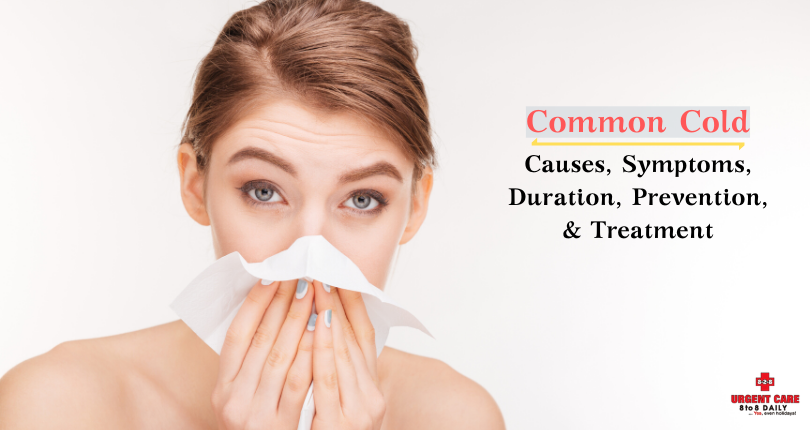


The common cold is a viral infection that affects your throat and nose. The common cold can occur at any time of the year, but it is most common during the winter, fall, and spring. Most people can recover from a common cold on their own within two weeks. However, some people may require medical attention if their symptoms don’t improve with time.
Even though different types of viruses, including human coronavirus, respiratory syncytial virus, human parainfluenza virus, human metapneumovirus, and adenovirus can all cause the common cold, rhinoviruses are the most common cause among them.
A person with a common cold may experience symptoms in two to three days after being exposed to a cold-causing virus. The symptoms may vary from one person to another, depending on the type of virus that has caused the cold, and generally include:
The common cold may begin with a runny nose with clear nasal discharge, which may become yellow or green as the cold progresses. Infants and children with the common cold experience the same signs and symptoms as adults do.
Generally, the common cold is contagious for one to two days before your symptoms begin, and until all your symptoms disappear. However, the common cold is most likely to spread during the first two to three days of illness.
These factors can increase your risk for the common cold:
The incubation period of the common cold is two to three days. After that, you may experience symptoms such as sneezing, sore throat, cough, and nasal obstruction.
The stages of the common cold include onset, progression, peak, and recovery. Generally, people will develop symptoms after 2 to 3 days of virus exposure. The progression and signs of the common cold vary from one person to another, depending on the type of virus they are infected with. Some people may develop severe symptoms, whereas others may develop mild symptoms. People may require 7-10 days or more to recover from a common cold depending on the virus type and their health condition.
You should visit your doctor if you have:
Seek immediate medical attention if your child has:
These tips can help you reduce your risk for infection:
Taking proper care and over the counter medication can tackle the symptoms of common cold, and if your symptom persists, you should consider visiting a doctor.